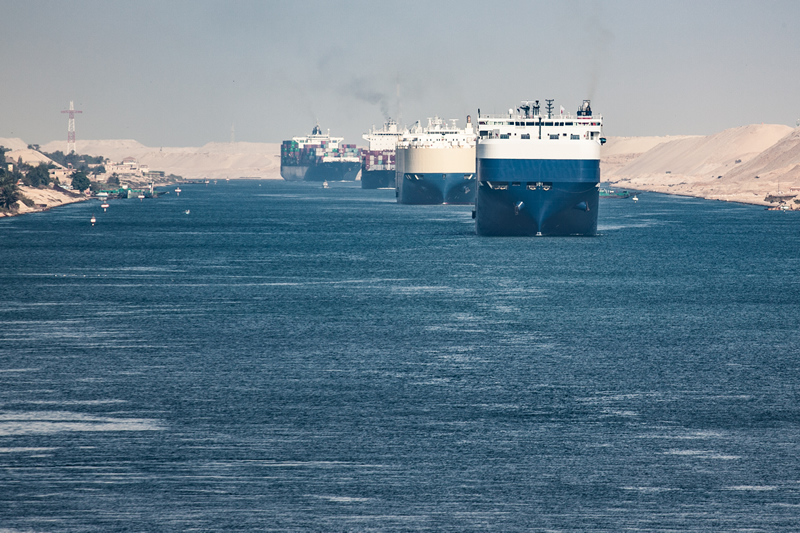CCS To Capture 15% Of Shipboard Carbon Emissions By 2050
29
Industrial carbon capture and storage (CCS) is set to surge with forecasts of a fourfold increase in capacity by 2030 backed by $80 billion in investment. The momentum is expected to continue through 2050 with the shipping industry playing a growing role.

DNV's first global forecast on the future of carbon capture and storage (CCS) predicts that onboard CCS technology will capture 15% of ship-based carbon emissions by 2050. The report marks a shift in perception, stating that CCS is no longer a niche or theoretical solution but is poised for substantial growth, especially within the maritime industry. According to DNV, deployment of shipboard CCS systems is expected to begin scaling up around 2040.
While CCS has long been considered a potential tool for decarbonization, it is now gaining traction in regions with regulatory support (such as Europe) and in sectors where it is most practical, like power generation and oil and gas. Government subsidies are accelerating deployment: Denmark is backing the Greensand and Bifrost projects, while Norway is covering 80% of the costs for the Longship CCS initiative. In the U.S., tax incentives from the Inflation Reduction Act have sparked a surge in new CCS developments.
CCS can also be implemented onboard ships, although there are challenges. Captured CO2 must be stored in pressurised tanks that take up valuable space, and offloading infrastructure is currently limited to a few ports. Additionally, the capture process itself consumes energy, slightly raising overall fuel use. However, it offers a notable benefit: compatibility with conventional marine fuels, including heavy fuel oil (HFO), when used with scrubbers.
DNV projects that onboard CCS could capture and store 15% of maritime CO2 emissions by 2050, with the maritime sector contributing 9% of the total carbon stored via CCS worldwide. Shipping will also be instrumental in supporting offshore CCS infrastructure, especially in regions like the North Sea and Mediterranean. DNV expects ships to play a central role in transporting CO2 from coastal terminals to offshore injection sites.
As a leading classification society and maritime advisory firm, DNV continues to help shape the industry’s response to climate challenges, focusing on safety, energy efficiency, and environmental performance across the global shipping and offshore sectors.
Shipping will also have a part to play in developing offshore subsea injection and storage facilities. "Ship transport, especially in the North Sea or the Mediterranean Sea, will likely play a key role in transporting CO2 between shore terminals or via offshore injection," DNV predicted. DNV, formerly known as Det norske Veritas, is a leading international certification body and risk management company with a significant presence in the maritime industry. They provide a range of services including classification, advisory, and software solutions for the global shipping and offshore sectors. DNV's core focus is on enhancing safety, quality, energy efficiency, and environmental performance within the maritime world.
Carbon Capture and Storage (CCS) could be key in the reduction in Carbon Dioxide (CO2) from industrial processes. Protea’s range of gas analysers have been used both in research into emerging technologies for CCS, but will also play an important role in the regulatory emissions monitoring from installations of CCS. Protea’s multi-gas FTIR technology is ideally suited to new processes involving carbon reduction, such as Carbon Capture and Storage (CCS). For more information visit https://www.protea.ltd.uk/carbon-capture-and-storage-ccs/.
#Protea #Emissions #Monitoring #CEMS #FTIR #Gas #Analysers #Shipping #Marine #Carbon #Capture
Other Articles
Carbon Capture Utilisation & Storage (CCUS) In 2026
16
Global Underground CO2 Storage Data Offers Hope Amid Rising Emissions
01
IMO Postpones Adoption Of Global Net-Zero Shipping Framework
04
Pioneering Carbon Capture Projects Ready For Construction
03
Methanol & Ammonia Deemed Ready As Zero-Emission Shipping Fuels
01
Carbon Capture Storage Reaching A Turning Point In Decarbonisation
13
Global Shipping Industry Struggles To Navigate Net Zero Transition
21
Carbon Capture Surges as Economics Policy & Industry Demand Align
14
GHG Emissions At Ports On The Rise Despite Initiatives
07